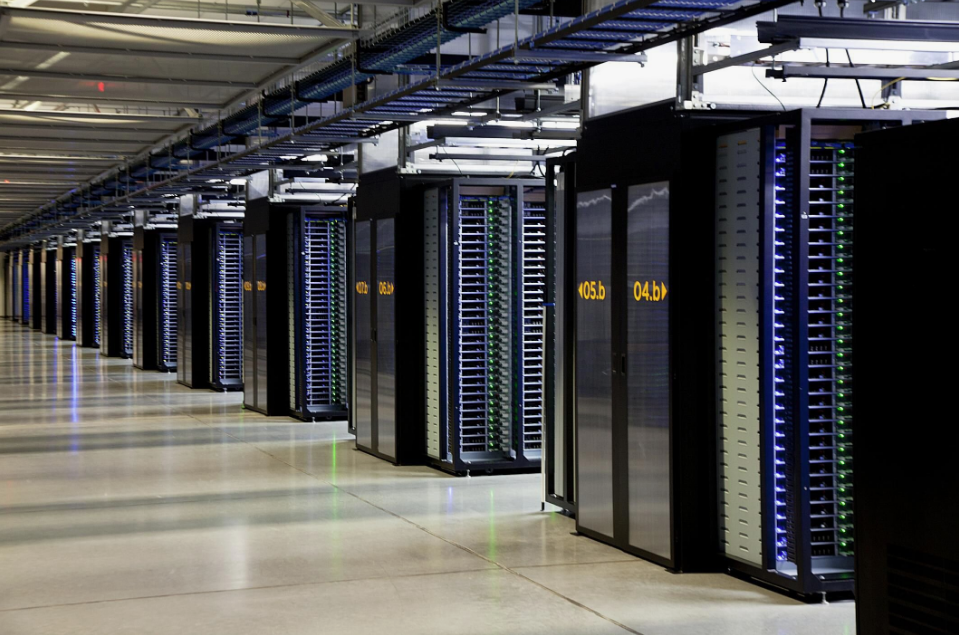What Is The Role Of Data Centers In Modern Business Operations?

Information is one of the core components that drives a business’s success. For storing information, you need a reliable system that compliments the other components of your business in the long run.
This is where the role of the Data Center becomes very important. But the question is, what is a data center, how does it work, and what are its benefits? You will get all these answers further in the article.
What is a Data Center?
In simple words, it is an IT facility that manages different operations to store, process, and disseminate data and applications over a centralized network. It is a house for many important components for your day-to-day business operations.
Some of the major components are:
- Servers: These are powerful systems that handle large amounts of data processing and storage.
- Network Tools: Equipment such as routers, firewalls, and switches that are responsible for managing the flow of information.
- Power Supply: For continuous data center operations, a constant power supply is crucial.
- Cooling: These generate extreme amounts of heat and you need proper cooling systems to maintain constant temperatures
Why Data Centres Are Crucial For Business Operations?
It provides an infrastructure for business operations to carry out their operations. From hosting websites to storing data, these centers play an integral part in your business success. Some of its main benefits are:
1. Emails and File Sharing
It hosts email servers to facilitate a proper communication system between servers and other file storage systems. It ensures that emails are delivered timely and can be accessed from any location. It aims to enhance the internal file-sharing process and improve the credibility of your systems.
2. Efficiency For Productive Applications
It provides a stable and efficient environment for software and services like CRM and ERP. It ensures that applications are running smoothly and are accessible from anywhere, anytime.
3. Improves Scalability
With the capability to host various email and communication platforms, data center helps businesses maximize their operations based on their resources. It mostly works for startups where internal communications is very crucial.
4. Big Data and Artificial Intelligence
It uses AI to manage and perform various big data operations switch minimal human intervention. It saves time, and energy and establishes a cooling mechanism for data flow. For example: AI cooling systems adjust temperature automatically based on real time.
5. Enhances Security
Data Center uses high-quality security measures to protect your business’s sensitive information. It also protects your systems from gaining unauthorized access and cyber-attacks.
6. Global Reach
With the support of technologies like Cloud and Edge computing, it helps your business to gain customers from all over the globe, providing fast and trustworthy services. The role of data centers also includes:
- Data Management Recovery and Backup
- High Volumes of transactions such as E-commerce
- Delivering Serivie to various gaming communities
Different Types of Data Centers
It is not a single component that ensures the smooth working of a business. Data Center has various types used in different organizations. Some of the main are:
1. Enterprise
These are constructed and owned by a single operator for their internal operations. These are generally located in their in-house premises and are used for performing various day-to-day activities.
For example, An MNC’s internal system supports its operations worldwide without using any third-party systems.
2. Colocation
It provides businesses with an external space, off-premises to carry out their operations. It hosts facilities like power supply, cooling systems, etc. However, the business provides its components such as hardware, software
A small startup renting a space is an example of a colocation data center.
3. Cloud
It is operated and managed by external cloud providers such as Amazon Web services, Microsoft Azure, etc. As the infrastructure is maintained by a third party, users can access resources through the internet. It is a reliable option for businesses who want flexibility in their operations.
For Example, A company that uses AWS to host their e-commerce platform
4. Edge
These are generally located close to the end-users and their devices and help in collecting and transmitting the data from its source. This method reduces latency by bringing the data near to its source. It is important for applications that require real-time data processing.
For example: Autonomous Vehicles supported by Edge.
5. HyperScale
As the name suggests, it is designed to manage and support hundreds of servers simultaneously. It is a reliable option for cloud computing and big data processing. Many industrial giants such as Microsoft, and Google use this method in their business operations.
For Example, A global streaming service supported by HyperScale Data Center.
Future Implications for Businesses
As technology continues to grow, we are going to see data centers becoming the top priority of businesses to succeed in the long run. Some of its major upgrades expected are:
- Sustainability: These consume huge amounts of energy. Therefore, companies must invest in green technologies to reduce their carbon footprint.
- Upgrades in AI: Although it is being used in many data operations AI is going to play a very vital role, especially in applications that require a minimum human involvement
- Edge Computing: With the increase in IoT, the demand for edge computing is also increasing. It can play a crucial part in bringing data to its source, reducing latency, and improving the performance of edge computing.
Final Thoughts
Data centers serve as the backbone of any business operations. As businesses are more relying on digital solutions, their role is becoming even more complex. Whether you are a businessman or a curious tech enthusiast, having proper knowledge of data centers and their work can offer valuable insights and make better decisions for your IT structure.





